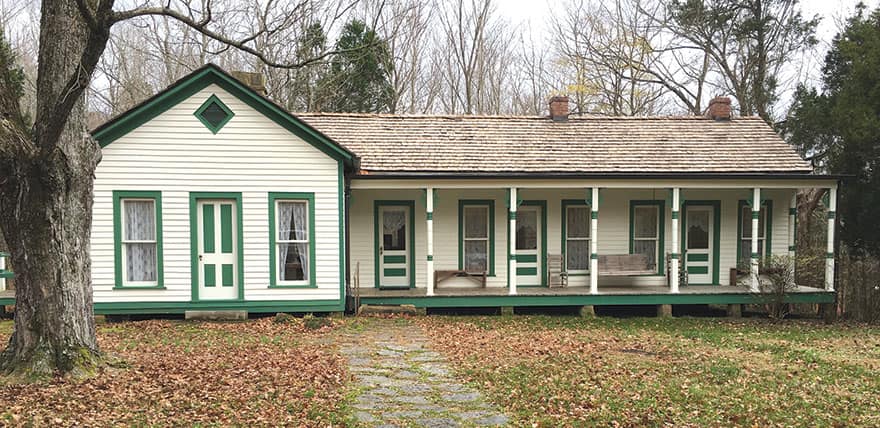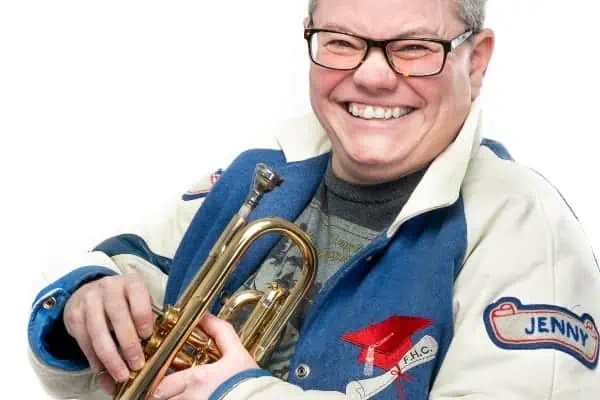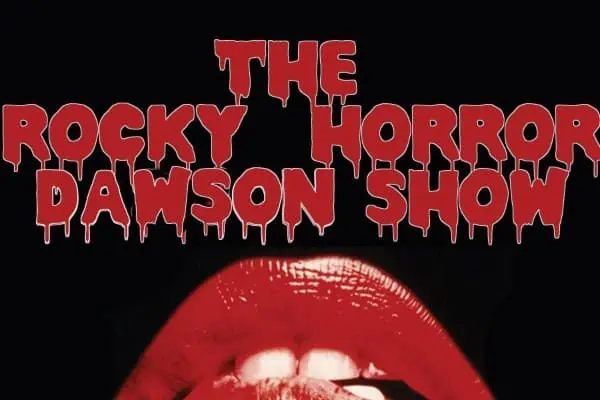Sammy Shelor / Banjo Sammy (left), took over the Lonesome River Band 18 years ago, pictured here in 2014
Sammy Shelor, 55, of Meadows of Dan, Virginia, in the central Blue Ridge Mountains of northwestern North Carolina and southwestern Virginia, was literally born to play banjo on October 10, 1962. Both of his grandfathers were banjo pickers; and one fashioned him a toy banjo, when he was four, made with the lid of an old pressure cooker; and the other promised to buy him a real banjo, as soon as he learned to play two songs.
By 10, he was playing in local bands and jams and went professional in Richmond when he was 19, playing with Heights of Grass, which eventually became the Virginia Squires, a gig that lasted six years. He joined the Lonesome River Band in 1990, became co-manager in 1995 and took over control in 2000 when he was 38, after winning Banjo Player of the Year almost annually through the ’90s.
“We were known as an outlaw band in those days,” he recalled over lunch in the Junction, “the wild bad boys of bluegrass, although most of it was just marketing to sell tickets and albums. I’m pretty religious, personally, and always felt a little guilty singing about guys who cheated all the time, then shot their ex-wives while drunk on moonshine.
“Sometimes I got carried away with the roleplaying and worked my way through most all of the common addictions in the music business—booze, pot, pills, powders, nicotine and some I’ve forgotten—when I would have been happier playing gospel music once a week all those years.”
He also lived through a long, childless first marriage, a painful divorce and is now like a born-again newlywed with his young second wife and their year-old son, Samuel Ellis Shelor. He shows iPhone videos of him on a swing, to everybody, and the kid looks just like his Daddy.
Since taking over control of Lonesome River, 18 years ago, Sammy figures he’s now logged over four-million miles as the band’s bus driver, which he considers one of his easier chores. “Driving is relaxing,” he said with a smile and a groan, “compared to contracts and other paperwork, especially paying taxes on what little money we earn. Taxes freak me out every time.”
Considering what a legendary superstar he is in bluegrass circles, he’s oblivious to his fame, and talking to him was like talking to—well, the band’s bus driver. He’s also a human warehouse of music stories, and a living museum full of bluegrass lore and legends. When I asked him about the historical connection between bluegrass and baseball, he lit up like a pinball and went on a run:
“It was before my time, of course, but well known that Bill Monroe was a big baseball nut and used to open or close his shows with baseball games, depending on the weather. He wouldn’t hire a musician or a roadie unless he was a good baseball player. Mainly he did it to build up crowds, but he also made his musicians work on his farm, which had no tractors.
“I heard stories about Monroe plowing his Kentucky fields with mules when he was 73. He also used to work his band like they were mules, or so they say. His only schedule was they had to be back in Nashville every Sunday to play the Grand Ole Opry and do their laundry. If you couldn’t plow a field or play ball on one, you couldn’t be in Monroe’s band.”
Now you know why Flatt & Scruggs quit Monroe and went on their own: They were all hit, no field.
Not that there is any serious debate about the origin of the bluegrass term, but this 1948 quote is from Ralph Stanley, the second band manager to use it:
“Oh, [Monroe] was the first. But it wasn’t called bluegrass back then. It was just called old-time mountain hillbilly music. When they started doing the bluegrass festivals in 1965, everybody got together and wanted to know what to call the show, y’know. It was decided that since Bill was the oldest man and was from the bluegrass state of Kentucky and he had the Blue Grass Boys, it would be called ‘bluegrass.’”
But the true roots go back to the Civil War and beyond, and Sammy’s Blue Ridge Mountains are considered to be the true spawning streams of bluegrass, as over 75 recording artists were born there.
Banjo Sammy considers himself a product of his banjo-playing grandfathers, who took him to see the legendary Scruggs when he was four. Scruggs was one of the first Bluegrass Boys and invented the three-finger picking style on a five-string banjo. His instruction videos identify him as a disciple of Scruggs with influences from many other greats he heard over the years, such as J.D. Crowe and Sonny Osborne of the Osborne Brothers.
When I asked some of his band members if he was the Babe Ruth of banjo picking, they said Scruggs will deserve that title forever because he invented the three-finger style; but Sammy is probably his most decorated and honoured disciple and, arguably, the best living bluegrass banjo-picker.
He downplays the question as inconsequential, since there are so many great banjo players in the bluegrass world, but is humbled by the awards he’s won, over the years, saying they are just an indication that “I must be doing something right.”
When I asked him if the Yukon is the farthest gig he’s ever played, away from his Blue Ridge home, he said, “Almost. We did a tour of Alaska military bases about 20 years ago, but this is the only time we’ve been back to the far northwest.”It’s been a lot of years and many miles down the long lonesome road, for the boss of Lonesome River Band, but he’s never been happier since the birth of his baby boy.
“This is the longest I’ve been away since he was born, and I’m ready to go home. It will be six long days by the time I get back there.”
The mountain banjo man from Meadows of Dan felt right at home in the shadows of the Kluane Ridge of the St. Elias Range, and now nothing remains of his visit but good memories of a good time—and enduring echoes of the sweetest banjo pickin’ ever heard in the Yukon.





